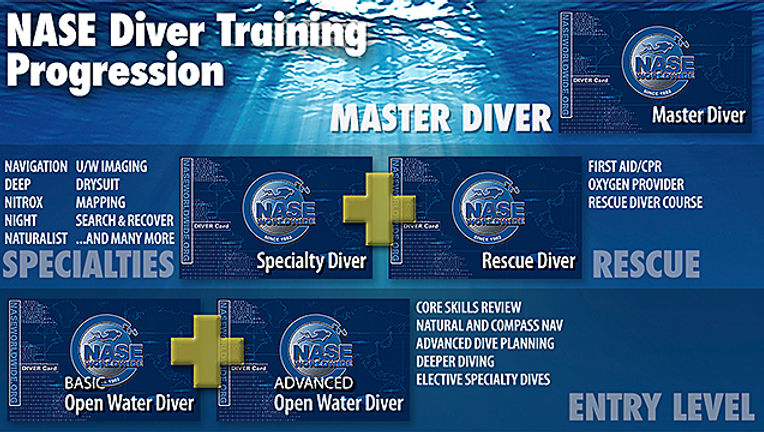Recreational Scuba Certification
In the 'old days', learning to dive could take anywhere from 3 to 6 months of weekly lessons and pool sessions (depending on which country and club or agency you were training with). Learning to dive in France is still a multi-month programme. These days, in most places you can get your initial Open Water Diver certification in less than a week.
So what gives? How can diving have changed so much? Many will argue that it's the new equipment innovations that allow for shortened training time. But in reality, that's only half the story, at most. The truth is, that the original granddaddy scuba text, was and still is, the US Navy Dive Manual. But just imagine, the current version is 992 pages long. The 'old school' scuba training and certifications were based directly on this most valuable Navy tome. Hence, the long training timeframe, to get certified.
And today, what gives? How can we offer Open Water certifications in less than a week's time?
Well, the recreational scuba training agencies have essentially chopped up the 900+ pages of knowledge, (and all the water training that goes along), into 'bite-size' courses.
Thus, the truth is, when you finish your Open Water Diver certification, you've only started down the path to becoming a 'complete' diver. Knowing this, the next question you should be asking is: "What further knowledge and skills do I need to attain, to become that complete diver?"
On the Core Scuba Courses page, is our answer (which means our opinion)... We've listed the courses which we consider fundamental for any diver around the world. Of course, in some areas, Ice Diving, Dry Suit Diving, or Altitude Diving must be added to this list.
But this list is appropriate for the waters of our Asian region.








